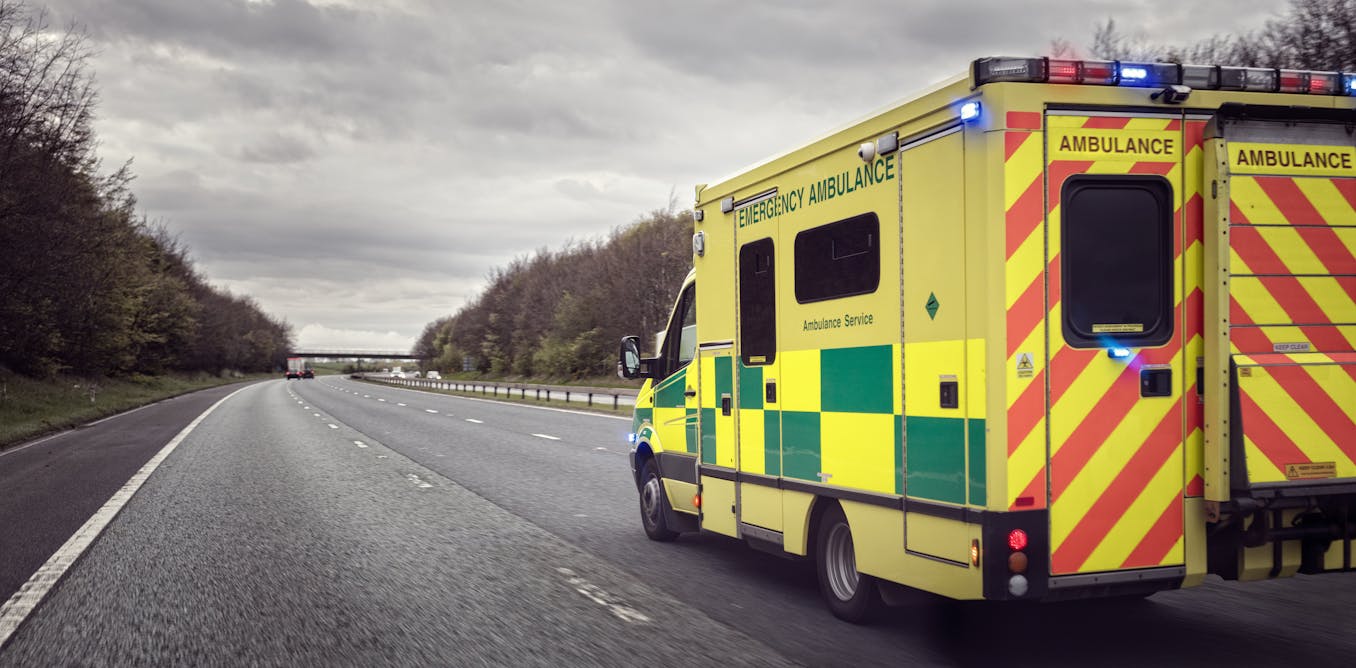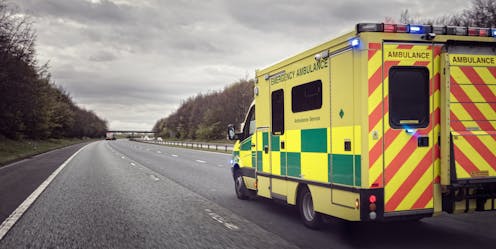Emergency service workers are already at high risk of burnout – coronavirus will make this worse
Nearly 90% of emergency service staff have experienced stress, low mood and poor mental health.
April 20, 2020 • 5 min • Source
As the COVID-19 pandemic moves from weeks to months, the emergency services are coming under even more strain and pressure – whether they are operating in the police, fire brigade or the ambulance service
MIND, the mental health charity has found that nearly 90% of emergency service staff have experienced stress, low mood and poor mental health at some point while working for the emergency services.
In my work, I have highlighted the growing instances of post traumatic stress disorder (PTSD) and other associated illness among emergency workers. This affects the psychological wellbeing of staff and significantly impacts their ability to function effectively while at work. It also affects the productivity of the emergency services while having a “ripple” effect on families. Cases of harassment and bullying of emergency service staff are also fairly common.
Evidence from around the world suggests that paramedics are at risk of acute and chronic stress. And that this can lead to cardiovascular diseases, sleep problems and obesity along with mental health problems.
In my research, I have highlighted staff shortages and retention issues in the NHS. My work has also shown how the highest sickness absence rates in the NHS are dominated by the ambulance workforce.
This helps to explain why firefighters have agreed to deliver food and medicine, drive ambulances and retrieve bodies during the pandemic. And along with the call for retired doctors and nurses to return to work, there have also been suggestions that former ambulance staff and police officers should come back to the frontline. This is seen as crucial to maintain operational resilience as demand grows on emergency services.
Safety first?
This all paints a fairly bleak picture of what life is like for an emergency service worker on the frontline – even without the current COVID-19 pandemic.
The safety of frontline emergency staff also remains a major issue. The government has come under severe criticism for its tardy response towards mass testing for COVID-19 – both for frontline responders and the community. There has also been an increasing number of healthcare staff dying due to lack of personal protective equipment (PPE), along with reports of staff “limiting work” due to such shortages.
The availability of PPE is fundamental to emergency first responders as the disease spreads. The Fire Brigade Union has already raised concerns for the safety of its members. It has highlighted the need for immediate testing to enable firefighters to “maintain resilience for the core functions of the service”.
Similar concerns about lack of testing of frontline police staff and availability of PPE stocks have also been highlighted, along with reports of ambulance crews “not being adequately protected”.
The situation is further exacerbated by the mindless behaviour of some people – with reports of crowds coughing on police staff along with senseless attacks on ambulance crews. Rightly, the Crown Prosecution Service has said that any such attacks on emergency workers will be punishable by up to two years in prison.
The crisis also demands constant monitoring to ensure emergency services are able to operate effectively without pushing individual services “over the edge”. I have previously identified such pressures in the NHS ambulance services, which is grappling with an ever increasing demand even during “normal” times.
I have also identified existing governance challenges and coordination issues between emergency services, something highlighted by the Grenfell Inquiry report into the fire at the Grenfell Tower in London in June 2017.
Staff morale
The professionalism and bravery of emergency service workers, who risk their lives to protect the community and keep us safe, has been particularly highlighted in the pandemic. But like many other sectors, emergency services are facing big challenges in dealing with the COVID-19 situation – and this is bound to impact upon their mental wellbeing.
The sheer complexity involved in dealing with a fast-moving pandemic necessitates good leadership, determination and honesty. This will be crucial to coordinate responses between various agencies to maximise resources, protect staff and maintain organisational resilience across the sector. This is far from easy, and as my analysis suggests, may prove a real test for leaders.
Ultimately the crisis demands compassionate leadership so that service chiefs can boost staff morale and motivate staff in responding to the COVID-19 crisis to help save lives.
Paresh Wankhade is affiliated with Fellow, Institute of Civil Protection and Emergency Management Trustee, Fire Service Research and Training Trust


